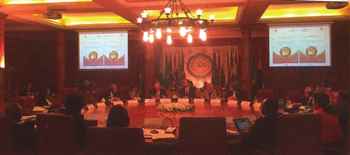
Permanent Representative of Sri Lanka to the UN in Geneva, Ambassador Ravinatha Aryasinha said that in the Sustainable Development Goals (SDGs) which are incorporated into the Development Agenda, migration cuts across several aspects of development, including improving the quality of human mobility through well managed migration policies; displacement among issues related to peaceful and inclusive societies and Disaster Risk reduction; address trafficking in a comprehensive manner and action by Finance for Development Action Agenda which deals with remittances. Ambassador Aryasinha made this observation in his opening remarks while he moderated the Session on ‘Reflecting on the outcomes of the 2013 UN high level dialogue on international migration and development with a view to implementation of the 2030 agenda for sustainable development’ of the Fifth Global Meeting of Chairs and Secretariats of Regional Consultative Processes on Migration (RCPs) held on 21st October 2015 in Cairo, Egypt.
Ambassador Aryasinha commended the significant role played by the IOM in actively contributing to the process of formulating the Post-2015 Development Agenda by advocating for migration to be recognized as an essential component of any future development framework and of national development policies and plans.
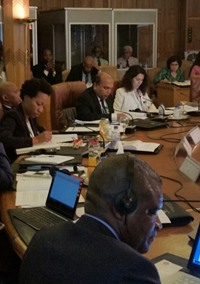
Initiatives for migrants from the Asian region taken under Sri Lanka's Chairmanship of the Colombo Process (CP) was commended at the Fifth Global Meeting of Chairs and Secretaries of Regional Consultative Processes on Migration (RCPs), held in Cairo, Egypt, 21-22 October 2015.
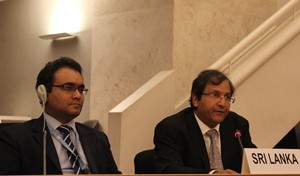
Permanent Representative of Sri Lanka to the UN in Geneva, Ambassador Ravinatha Aryasinha addressed the 66th Session of the Executive Committee of the United Nations High Commissioner for Refugees (UNHCR) on 07 October 2015 in Geneva.

Permanent Representative of Sri Lanka to the UN in Geneva, Ambassador Ravinatha Aryasinha addressed the 55th Series of Meetings of the Assemblies of Member States of WIPO on 5 October 2015 in Geneva.
Director General of the National Intellectual Property Office of Sri Lanka, Mrs. Geethanjali Ranawaka and Second Secretary Ms. Dilini Gunasekera also participated in this session.
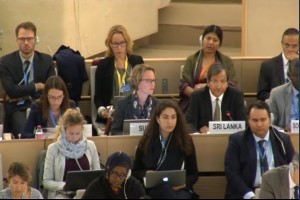
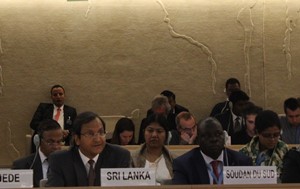
Sri Lanka participated in the general debate held under Item 3 regarding the Report of the Intergovernmental Working Group on Right to Development at the 30th Session of the Human Right Council in Geneva on 17 September 2015.
Full Statement
